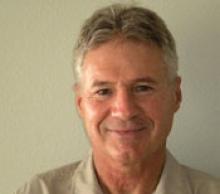Wally Bowen, Rural Broadband Advocate, Passes
We received the sad news today that Wally Bowen, one of the leading advocates fighting to bring affordable broadband to rural communities, especially in Appalachia, recently passed away.
In addition to many other contributions, Wally served as founder and executive director of the nonprofit Mountain Area Information Network in Asheville, North Carolina. He spoke on media reform at a number of venues, including the Aspen Institute, the New America Foundation, and the National Association of Telecommunications Officers and Advisors (NATOA).
Having collaborated with Wally, Chris understood his passion and dedication and gave this tribute:
Wally Bowen was an inspiration in many ways. He worked tirelessly to improve Internet access in the rural mountains of western North Carolina and for media justice. When I began working in this area, Wally was already a champion of community networks and incredibly welcoming.
Over the years, I always respected him and even enjoyed our occasionally friendly disagreements because I always knew we was thinking deeply about these issues and cared so very much about connecting people that the market was leaving behind.
Because we respected Wally's work, over the years we published a number of his pieces. We already feel the void left by the loss of Wally Bowen but are encouraged by the positive results he left behind.
Other coverage celebrating Wally Bowen:
Harold Feld's Tribute to Wally: In Memoriam: Wally Bowen — Internet Pioneer, Community Activist, and A Hell of God Guy.
Free Press: Mourning Wally Bowen, a Leading Light in Bringing Communications to All
Daily Yonder: Wally Bowen: He Put Rural On The Map – And On The Internet
Wally was honored at the 2015 Parker Lecture.



